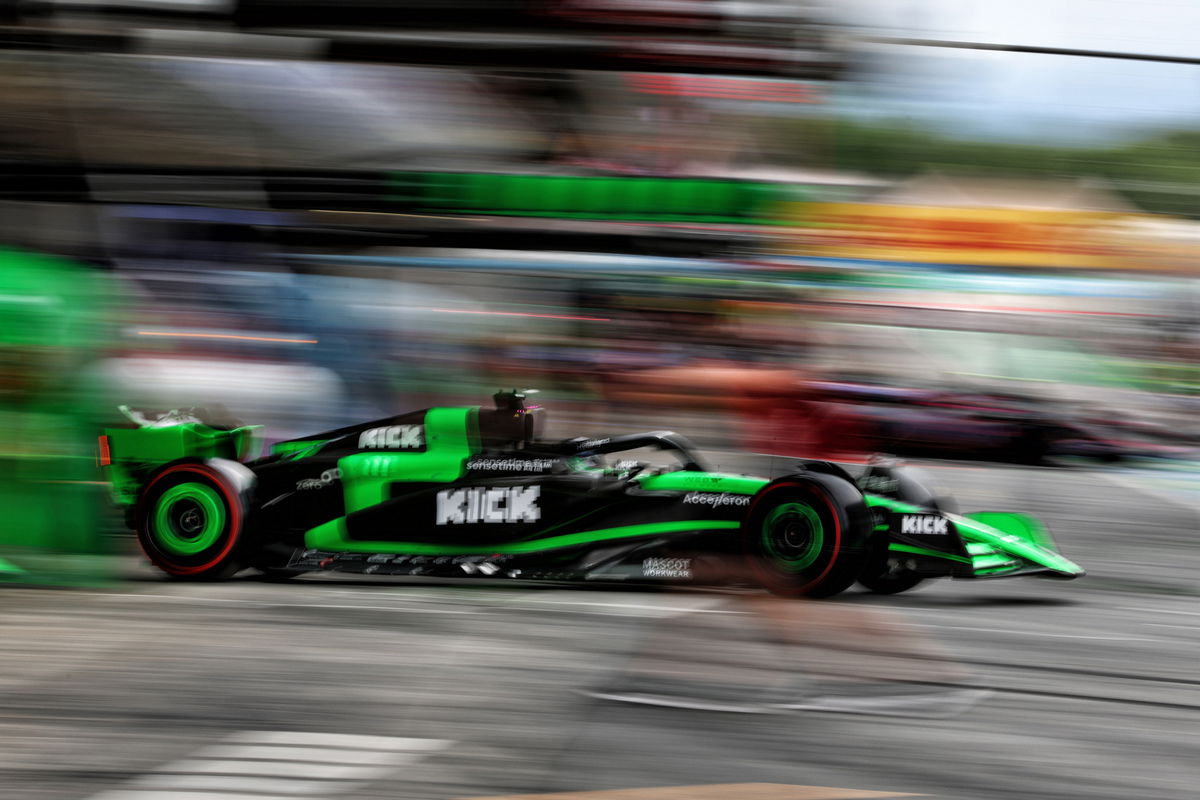

The Swiss squad has had a torrid time this year, with a trio of 13th-place finishes the best it can write home about.
So bad has the opening half of the year been that Valtteri Bottas sits 21st in the drivers’ championship that, realistically, only has 20 competitors (Oliver Bearman finished seventh in his Saudi Arabian cameo for Ferrari).
It’s early races were plagued by a wheel nut issue, a problem which really took far too long to resolve. It has since been dealt with, but its year has hardly improved.
Meanwhile, Sauber is in a significant period of change.
Already transitioning from ‘Sauber’ to Audi for 2026, that process is understood to have hit some speedbumps behind the scenes.
That has seen Audi up its interest in the operation, buying out Finn Rausing entirely, so it gains completely autonomy within the organisation.
It’s been suggested that was a result of difficulties investing in the team given the previous structure, which left it short of resources.
One can understand that given the lack of pace the C44 has displayed. There have been updates but they’ve achieved little, which is a concern looking to the future.
With higher-placed rivals able to make strong gains, why hasn’t Sauber been able to do the same?
The only conclusion is there is something fundamentally wrong within the design office at Hinwil.
Whether that’s poor management, the impact of a lack of investment, personnel issues, or a power struggle (that was also suggested before Audi announced its intention to completely acquire the squad) is unclear.
On the Audi side of the fence, there was clearly a political game going on.
Oliver Hoffman, formerly head of Audi Sport, became chairman of the board of Sauber in March inline with Audi’s increased investment.
However, his tenure there was short as he’s since been axed with suggestions ex-Lamborghini boss (which is owned by Volkswagen Audi Group) and now F1 head-honcho Stefano Domenicali had some input.
Hoffman will be replaced by Mattia Binotto, the ex-Ferrari team boss who himself was sacked at the end of 2022, while Red Bull Racing sporting director Jonathan Wheatley will also join the squad’s senior management.
Wrapped up in all that has been Andreas Seidl, who made the move from McLaren at the end of 2021, a move first revealed by Speedcafe.
It’s been a tumultuous time; management and ownership changes, political infighting, and an apparent lack of investment have all had an impact on the team’s performance where it matters.
While there is light at the end of the tunnel, the squad needs a period of stability to realise it. Until then, and likely at least for the balance of 2024, it’s going to remain tough for Sauber.





















Discussion about this post